PDFs to Read or Download
PDFs to Read or Download
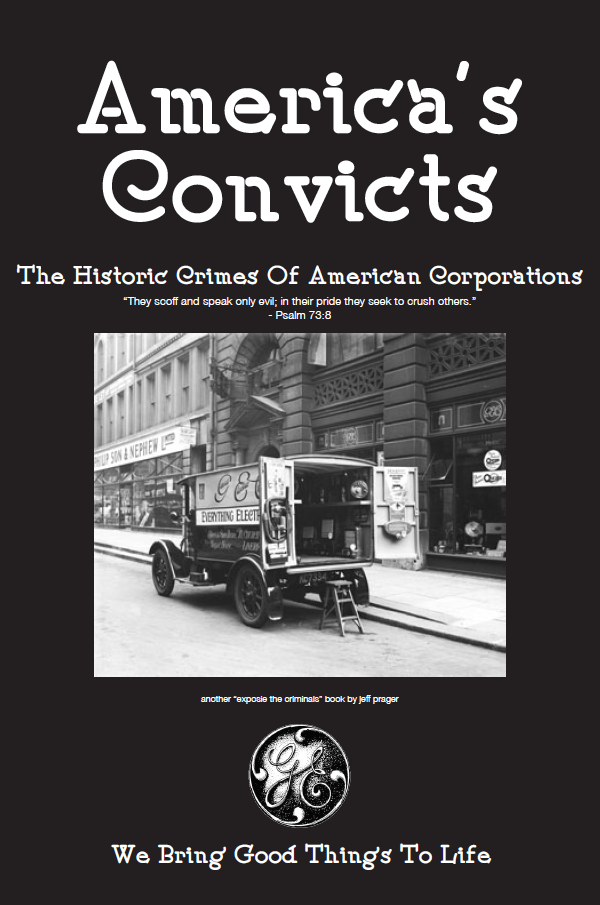
America’s Convicts: The Historic Crimes of American Corporations
compiled by Jeff Prager
Psychopaths exhibit traits such as superficial charm, an exaggerated sense of self-worth, glibness, lying, lack of remorse and manipulation of others. People that fall into this category include serial killers and politicians. Psychopaths are psychologically capable of acting free of any concern for social, moral or legal consequences with absolutely no remorse. America’s Convicts is a survey of the crimes committed by American corporations that clearly identify them as psychopathic entities.
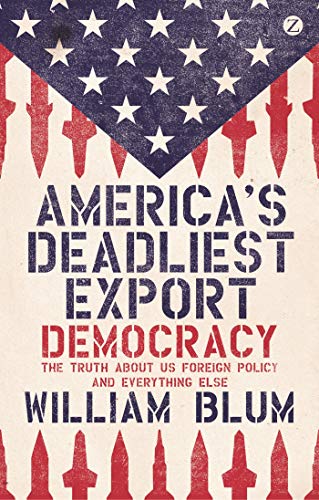
America’s Deadliest Export: Democracy – The Truth About U.S. Foreign Policy and Everything Else
by William Blum (2014)
Since World War II, the United States has repeatedly posited itself as a defender of democracy, using its military might to promote freedom abroad even as it ascended to the status of the world’s only superpower. The answer to almost every international problem, it seems, has been American military intervention—which is always pitched as a disinterested, noble attempt to deal with a crisis. In America’s Deadliest Export, William Blum mounts a powerful case against this belief—and against postwar American foreign policy in general. Stripping away the lies that have hidden America’s true agenda, Blum reveals the real goals—and brutal consequences—of American militarism.
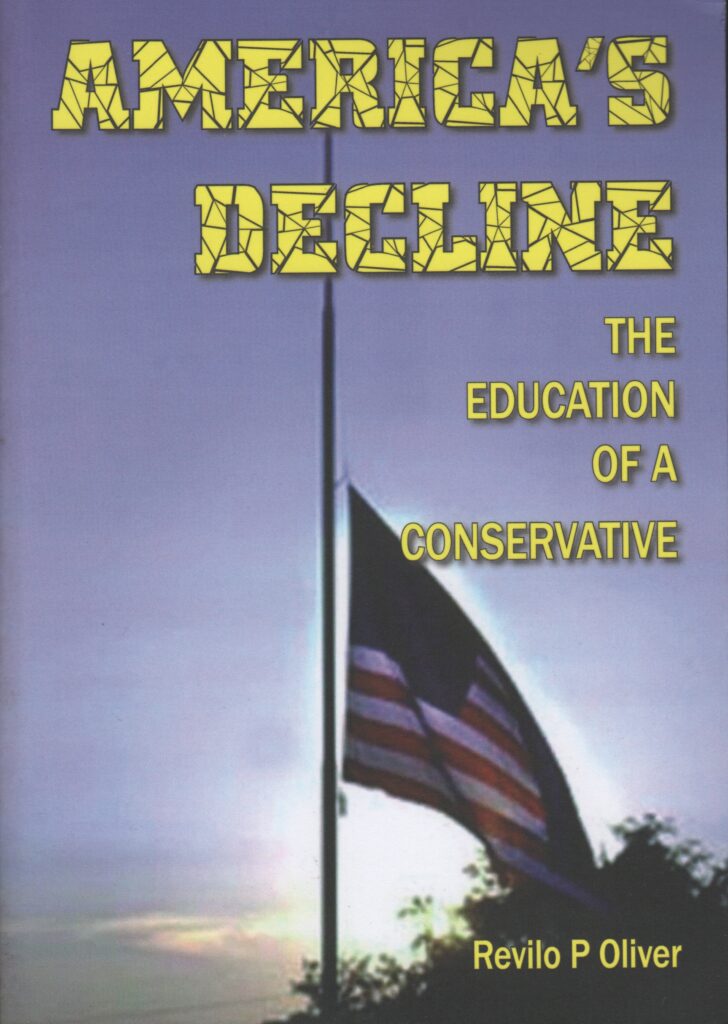
America’s Decline: The Education of a Conservative
by Revilo P. Oliver (2006)
Originally a conservative, Professor Revilo Oliver became an intellectual leader of racialists with a trenchant pen and large following. This collection of popular essays – primarily from 1955-1966, when the postwar struggle for America’s soul was at its highest – shows that the conservative cause was inherently not only a lost cause but an unworthy one.
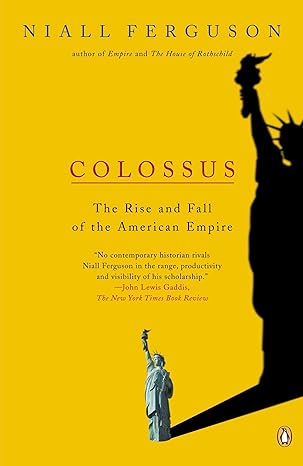
Colossus: The Rise and Fall of the American Empire
by Niall Ferguson (2005)
Is America an empire? According to our government, certainly not. Niall Ferguson, however, says that that’s just nonsense. In Colossus, he argues that in both military and economic terms America is nothing less than the most powerful empire the world has ever seen. But it is an empire with an attention deficit disorder, imposing ever more unrealistic timescales on its overseas interventions. Worse, it’s an empire in denial — a hyperpower that simply refuses to admit the scale of its global responsibilities. And the negative consequences will be felt at home as well as abroad. When overstretch comes, he warns, it will come from within — and it will reveal that more than just the feet of the American colossus are made of clay.
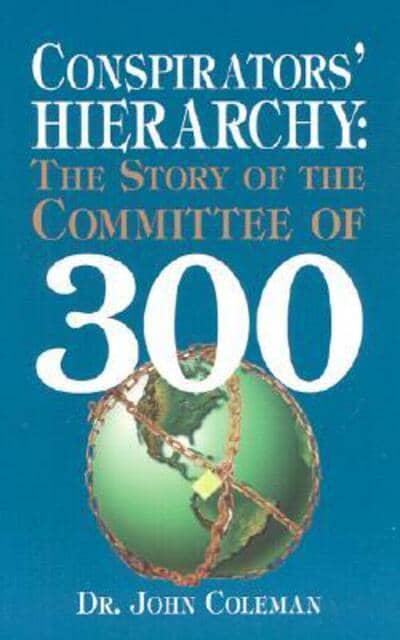
Conspirators’ Hierarchy: The Story of the Committee of 300
by Dr. John Coleman (1992)
Can you imagine an all-powerful group, that knows no national boundaries, is above the laws of all countries, controls every aspect of politics, religion, commerce and industry, banking, insurance, mining, the drug trade, the petroleum industry, and is answerable to no one but its members? If you are puzzled and perplexed as to why things are occurring that we as a nation don’t like yet seem powerless to prevent and why our former social and moral values have been turned aside and seemingly buried, this book will clearly establish that these conditions have been deliberately created to bring us to our knees.

Controlled Demolition of the American Empire
by Jeff Berwick (2020)
The American Empire is finished and will soon become another cautionary tale, tossed upon the trash heap of history, and destroyed by the very same societal issues that plagued the many former empires that share similar fates. All empires fall, but it is the reason they eventually come apart that is surprisingly similar. The fate of America will not be any different. Like a 47-story steel and concrete building that is covertly slated for demolition, the American Empire was built on a rotten foundation and has been targeted for destruction. And once the debris is cleared away, there is hope that a new civilization can be built, but will they make the same mistakes, or can they learn from the past and chart a different course?
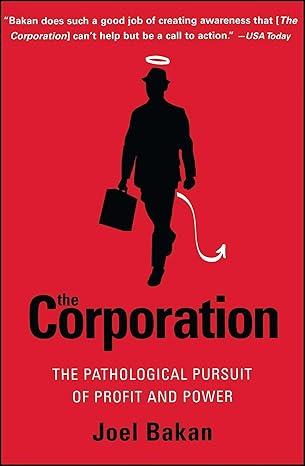
The Corporation: The Pathological Pursuit of Profit and Power
by Joel Bakan (2005)
The inspiration for the film that won the 2004 Sundance Film Festival Audience Award for Best Documentary, The Corporation contends that the corporation is created by law to function much like a psychopathic personality, whose destructive behavior, if unchecked, leads to scandal and ruin. Over the last 150 years the corporation has risen from relative obscurity to become the world’s dominant economic institution. Eminent Canadian law professor and legal theorist Joel Bakan contends that today’s corporation is a pathological institution, a dangerous possessor of the great power it wields over people and societies.

Dark Ages America: The Final Phase of Empire
by Morris Berman (2006)
Pundit Morris Berman argues that the nation has entered a dangerous phase in its historical development from which there is no return. As the corporate-consumerist juggernaut that now defines the nation rolls on, the very factors that once propelled America to greatness―extreme individualism, territorial and economic expansion, and the pursuit of material wealth―are, paradoxically, the nails in our collective coffin. Within a few decades, Berman argues, the United States will be marginalized on the world stage, its hegemony replaced by China or the European Union. With the United States just one terrorist attack away from a police state, Berman’s book is a controversial and illuminating look at our current society and its ills.
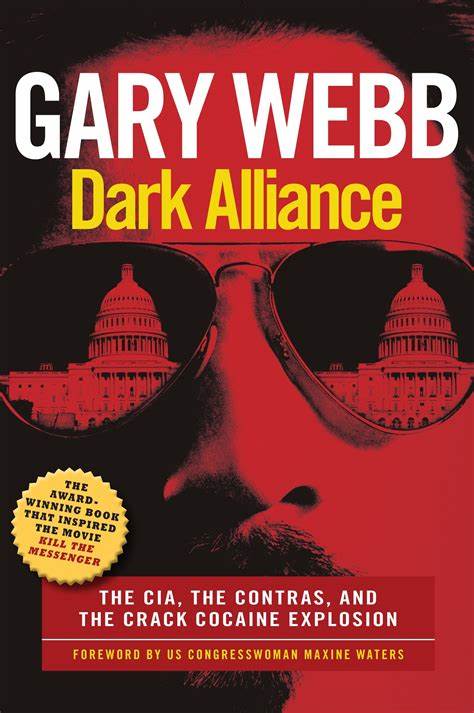
by Gary Webb (1998)
In August 1996, journalist Gary Webb stunned the world with a series of articles, titled “Dark Alliance,” in the San Jose Mercury News, which revealed that for the better part of a decade, a Bay Area drug ring sold tons of cocaine to Los Angeles street gangs and funneled millions in drug profits to the CIA-backed Nicaraguan Contras. Putting the series into book form and drawing from then newly declassified documents, undercover DEA audio and videotapes that had never been publicly released, federal court testimony, and interviews, Webb demonstrates how our government knowingly allowed massive amounts of drugs and money to change hands at the expense of our communities.

The Decline and Fall of the American Empire
by Robert Murray (2002)
The fall from grace of the greatest power on earth since ancient Rome is recounted with parallel and politically correct references to the analog of ancient Rome. If you are happy with life in America, don’t read this book.
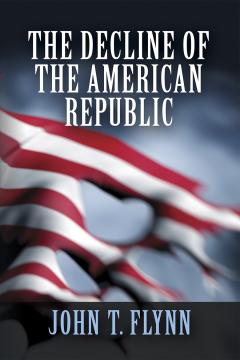
The Decline of the American Republic
by John T. Flynn (1955)
In 1955, John T. Flynn saw what few others journalist did: the welfare-warfare state conspired to bring down American liberty. The New Deal, combined with World War Two, had fastened leviathan control over a country born in liberty. This early analysis of the causes of the Great Depression and the failure of the New Deal also notes a point later demonstrated in detail by Robert Higgs: the economic boom of WW2 was false in every way, an artifice created by misleading government data and inflationary finance. Here we see the best of some of the last writings of the inter-war “Old Right,” a man whose opinions were deemed too libertarian for the likes of National Review.
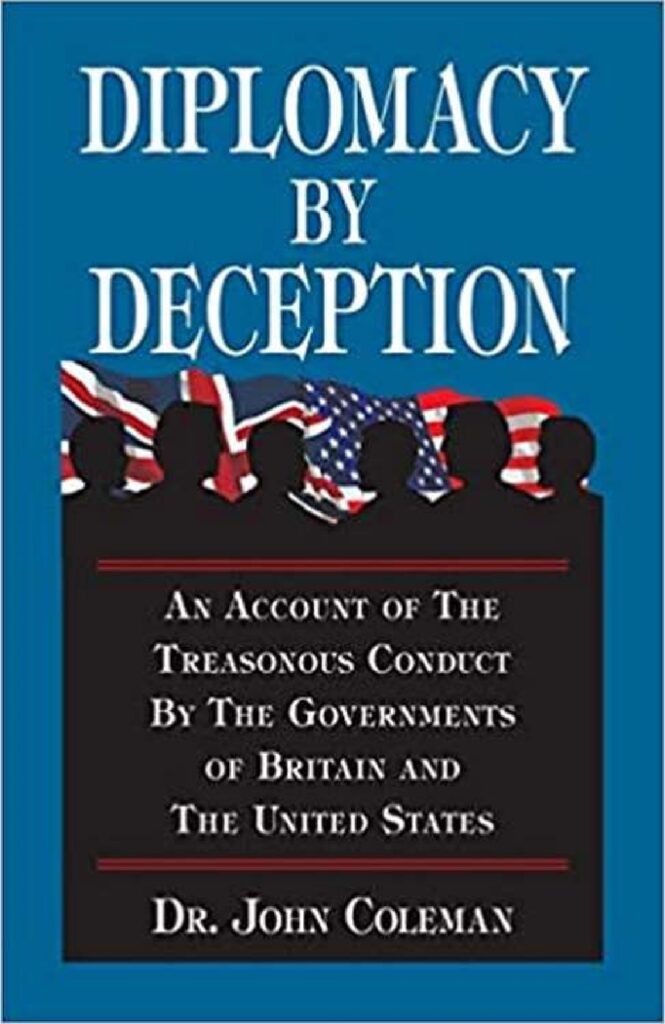
by Dr. John Coleman (1993)
As a companion book to Conspirators’ Hierarchy, this book will leave little doubt that the British and United States governments are the most corrupt in the world and that without their full cooperation in carrying out the designs of the Committee of 300, this supranatural body would not be able to go forward with its plan for a One World Government, to which former President Bush, one of its more able servants, referred to as the “New World Order.”
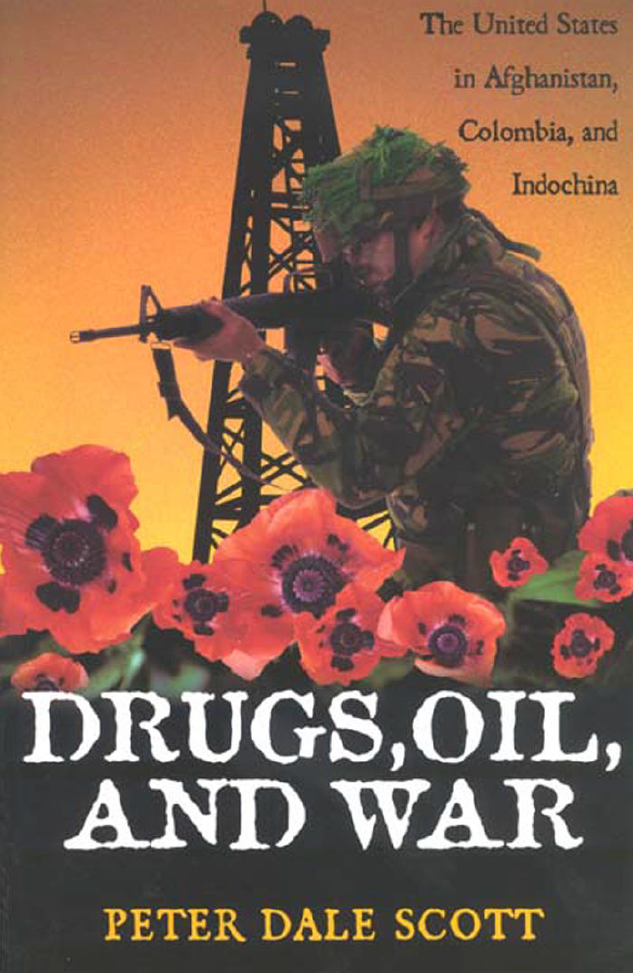
Drugs, Oil, and War: The United States in Afghanistan, Columbia, and Indochina
by Peter Dale Scott (2003)
A brilliantly researched tour de force that illuminates the underlying forces that drive U.S. global policy from Vietnam to Colombia and most recently to Afghanistan and Iraq. The author brings to light the intertwined patterns of drugs, oil politics, and intelligence networks that have been so central to the larger workings of U.S. intervention and escalation in Third World countries through alliances with drug-trafficking proxies.
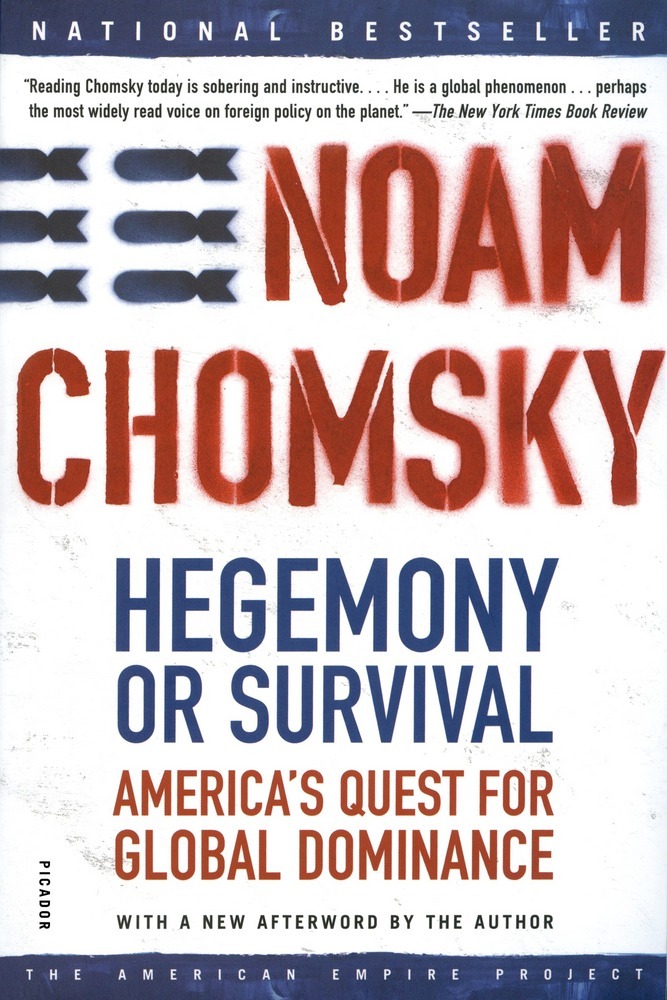
Hegemony or Survival: America’s Quest for Global Dominance
by Noam Chomsky (2004)
Demonstrates how, for more than half a century the United States has been pursuing a grand imperial strategy with the aim of staking out the globe. With the striking logic that is his trademark, Chomsky tracks the U.S. government’s aggressive pursuit of “full spectrum dominance” and vividly lays out how the most recent manifestations of the politics of global control-from unilateralism to the dismantling of international agreements to state terrorism-cohere in a drive for hegemony that ultimately threatens our existence.

Ideal Illusions: How the U.S. Government Co-opted Human Rights
by James Peck (2011)
The United States has long been hailed as a powerful force for global human rights. Now, drawing on thousands of documents from the CIA, the National Security Council, the Pentagon, and development agencies, James Peck shows in blunt detail how Washington has shaped human rights into a potent ideological weapon for purposes having little to do with rights—and everything to do with furthering America’s global reach.
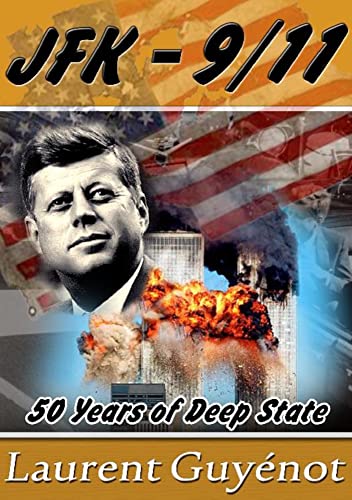
JFK-9/11: 50 Years of Deep State
by Laurent Guyenot (2013)
Assembles the most significant and well-documented “deep events” of the last fifty years into a coherent narrative of the “deep history” of the United States and its sphere of influence. Relying strictly on documented evidence and state-of-the-art JFK and 9/11 research, the book cuts through the layers of government and mainstream media lies, to expose the hidden powers at work in the Empire’s underground foreign policy. It documents the role of undercover and paramilitary operations, psychological warfare and disinformation campaigns, and above all false flag terror, in the course of world politics since the beginning of the Cold War, and increasingly since September 11th.
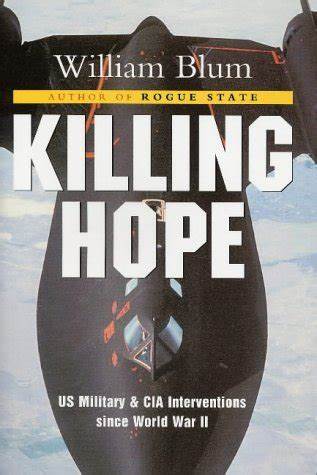
Killing Hope: U.S. Military & CIA Interventions since World War II
by William Blum (2003)
Is the United States a force for democracy? From China in the 1940s to Guatemala today, William Blum presents a comprehensive study of American covert and overt interference, by one means or another, in the internal affairs of other countries. Each chapter of the book covers a year in which the author takes one particular country case and tells the story – and each case throws light on particular US tactics of intervention.
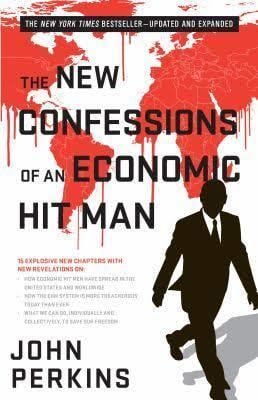
The New Confessions of an Economic Hitman
by John Perkins (2016)
Economic hit men are the shock troops of what Perkins calls the corporatocracy, a vast network of corporations, banks, colluding governments, and the rich and powerful people tied to them. In this book, Perkins shares new details about the ways he and others cheated countries around the globe out of trillions of dollars. Then he reveals how the deadly EHM cancer he helped create has spread far more widely and deeply than ever in the US and everywhere else—to become the dominant system of business, government, and society today. Finally, he gives an insider view of what we each can do to change it.
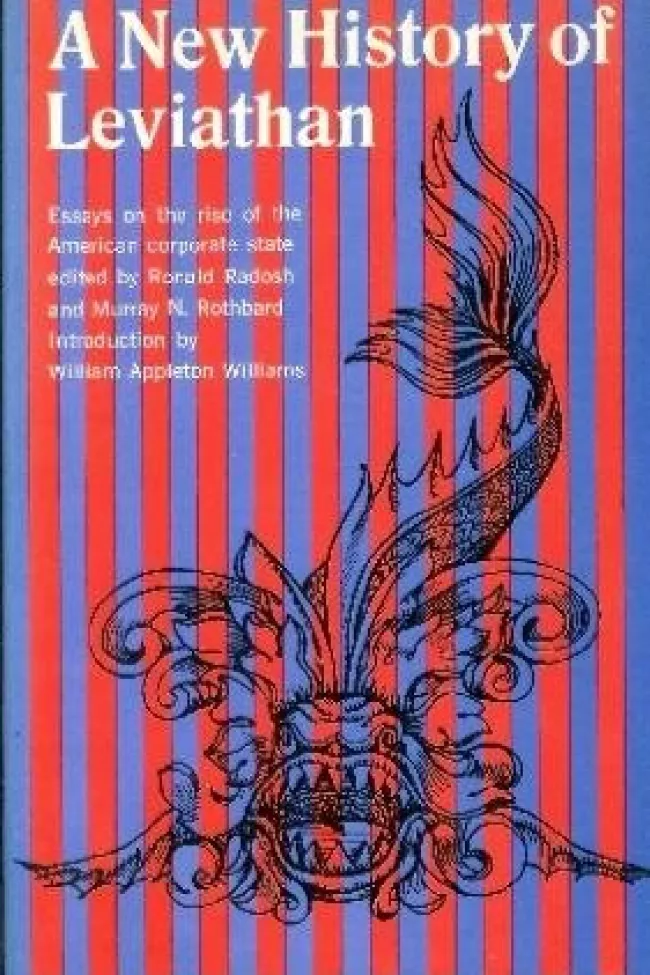
A New History of Leviathan: Essays on the Rise of the American Corporate State
by Murray N. Rothbard & Ronald Radosh (1972)
The essays in this book reveal how and in what manner the corporate state developed in twentieth-century America. They show how a sophisticated group of large corporate reformers managed to replace a freely competitive economy and make a new governing class, through the use of reform mechanisms to mold the government into a mighty instrument of monopolization and cartelization. These essays show how these sophisticated corporatist reformers sought to stifle the fierce winds of competition and to achieve what James Weinstein has called the “stabilization, rationalization and continued expansion” of the new political economy.
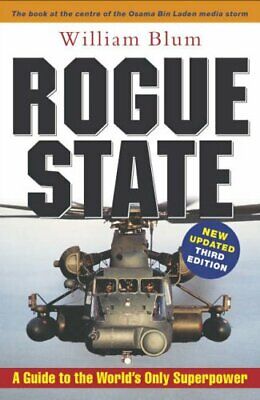
Rogue State: A Guide to the World’s Only Superpower
by William Blum (2000)
Critics will call this a one-sided book. But it is an invaluable corrective to the establishment portrait of America as ‘the world’s greatest force for peace.’ Even confirmed opponents of U.S. interventionism can find much in this important book that will both educate and shock them.
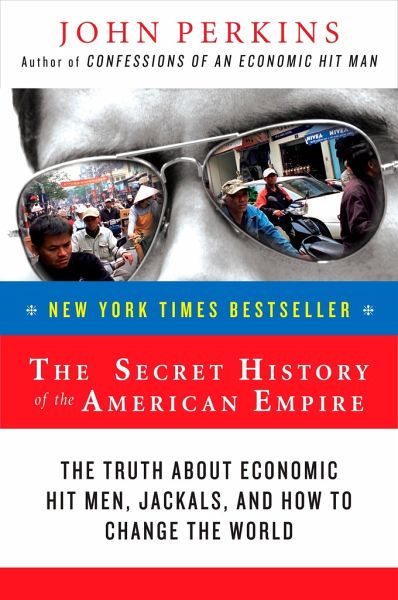
The Secret History of the American Empire
by John Perkins (2007)
From the author of the phenomenal New York Times bestseller, Confessions of an Economic Hit Man, comes an exposé of international corruption, and an inspired plan to turn the tide for future generations. From the U.S. military in Iraq to infrastructure development in Indonesia, from Peace Corps volunteers in Africa to jackals in Venezuela, Perkins exposes a conspiracy of corruption that has fueled instability and anti-Americanism around the globe, with consequences reflected in our daily headlines. Having raised the alarm, Perkins passionately addresses how Americans can work to create a more peaceful and stable world for future generations.
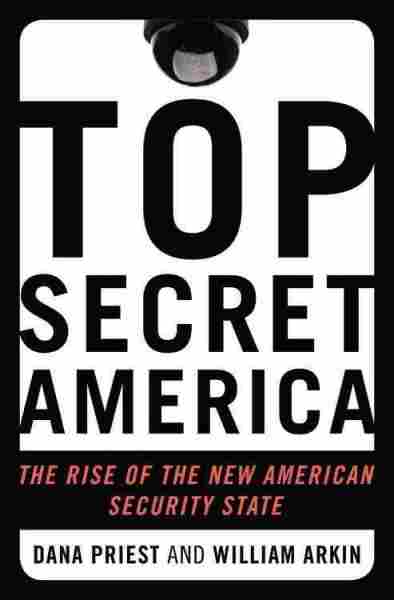
Top Secret America: The Rise of the New American Security State
by Dana Priest and William Arkin (2011)
In Top Secret America, award-winning reporters Dana Priest and William Arkin reveal that the top-secret world that the government created in response to the 9/11 terrorist attacks has become so enormous, so unwieldy, and so secretive that no one knows how much money it costs, how many people it employs or exactly how many agencies duplicate work being done elsewhere. The result is that the system put in place to keep the United States safe may be putting us in greater danger.

The Twilight of American Culture
by Morris Berman (2006 edition; originally published 2000)
A prophetic examination of Western decline, The Twilight of American Culture provides one of the most caustic and surprising portraits of American society to date. Whether examining the corruption at the heart of modern politics, the “Rambification” of popular entertainment, or the collapse of our school systems, Morris Berman suspects that there is little we can do as a society to arrest the onset of corporate Mass Mind culture.
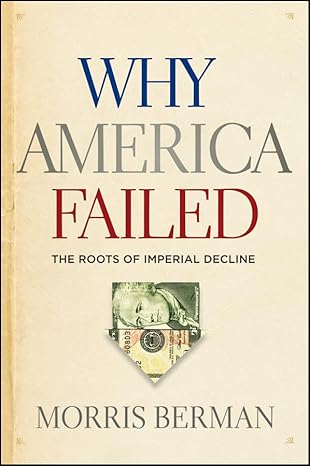
Why America Failed: The Roots of Imperial Decline
by Morris Berman (2012)
Why America Failed is the third and most engaging volume of Morris Berman’s trilogy on the decline of the American empire. In The Twilight of American Culture, Berman examined the internal factors of that decline, showing that they were identical to those of Rome in its late-empire phase. In Dark Ages America, he explored the external factors and the relationship between the events of 9/11 and the history of U.S. foreign policy. In this book, Berman provides a stimulating and provocative explanation for how we managed to wind up in our current situation: economically weak, politically passe, socially divided, and culturally adrift. It is a tour de force, a powerful conclusion to Berman’s study of American imperial decline.